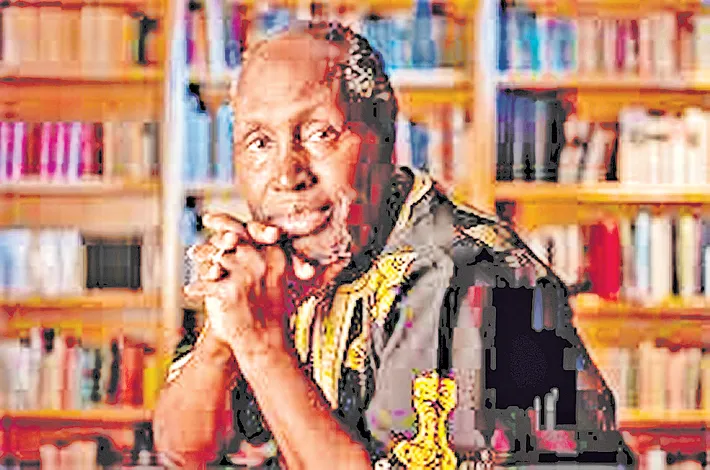Ngũgĩ wa Thiong’o, legend of African literature, dies at 87
30-05-2025 12:00:00 AM

Agencies London
The Kenyan writer Ngũgĩ wa Thiong’o, who was censored, imprisoned and forced into exile, a perennial contender for the Nobel prize for literature and one of few writers working in an indigenous African language, has died aged 87.
“It is with a heavy heart that we announce the passing of our dad, Ngugi wa Thiong’o, this Wednesday morning,” wrote his daughter Wanjiku wa Ngũgĩ on Facebook. “He lived a full life, fought a good fight.” He died in Atlanta, and his daughter said more details would be announced soon.
“I am me because of him in so many ways, as his child, scholar and writer,” his son Mukoma Wa Ngũgĩ wrote on X. “I love him - I am not sure what tomorrow will bring without him here. I think that is all I have to say for now.”
Ngũgĩ explored the troubled legacy of colonialism through essays, plays and novels including Weep Not, Child (1964), Devil on the Cross (1980) and Wizard of the Crow (2006). Consider a giant of the modern African pantheon, he had been a favourite for the Nobel prize in literature for years. After missing out on the prize in 2010 to Peruvian author Mario Vargas Llosa, Ngũgĩ said he was less disappointed than the photographers who had gathered outside his home: “I was the one who was consoling them!”
Born in 1938, while Kenya was under British rule, Ngũgĩ was one of 28 children, born to a father with four wives. He lived through Mau Mau uprising as a teenager, during which authorities abused and tortured tens or even hundreds of thousands of people. During the conflict, Ngũgĩ’s father was forced off his land, and two of his brothers were killed.








